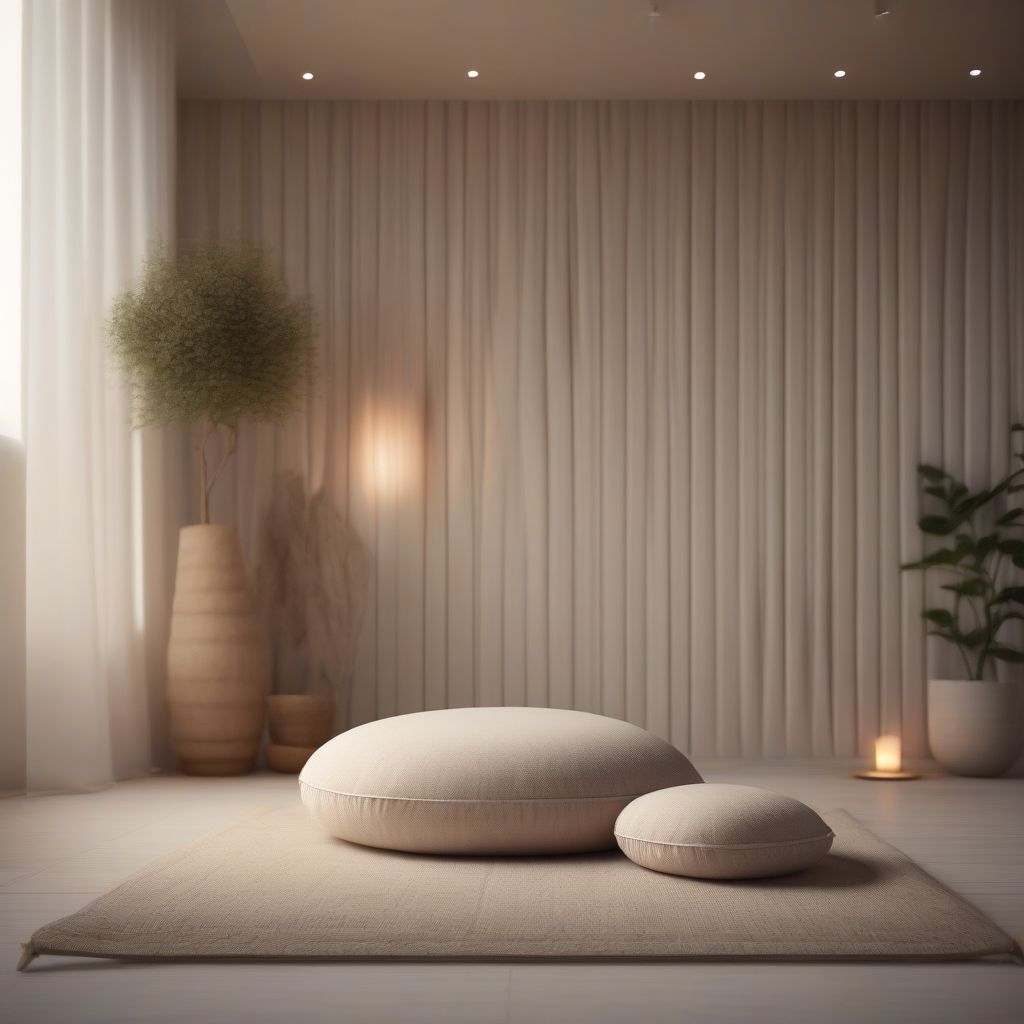In our fast-paced world, finding a moment of peace can feel like a luxury we can’t afford. But what if I told you that cultivating tranquility within your own home is easier than you think? Creating a dedicated meditation space can be the key to unlocking inner peace and enhancing your overall well-being. It’s not just about having a quiet corner; it’s about designing a sanctuary where your mind can unwind and reconnect with itself.
As a nutritionist and meal prep coach, I understand the importance of creating the right environment for a healthy mind and body. Just like you wouldn’t prepare a nourishing meal in a chaotic kitchen, you wouldn’t meditate in a space that doesn’t promote calm and focus.
This guide will walk you through the steps to transform any corner of your home into a haven of tranquility, even if you’re short on space or time.
Understanding the Essentials of a Peaceful Meditation Space
Before we dive into the how-to’s, let’s define what makes a meditation space truly effective:
- A Sense of Calm: Your space should evoke a feeling of tranquility the moment you step into it.
- Minimal Distractions: Minimize visual and auditory clutter to encourage inward focus.
- Personalization: It’s your sanctuary; infuse it with elements that resonate with you.
Creating Your Meditation Haven: A Step-by-Step Guide
1. Choosing the Right Location
- Quiet Corner: Opt for a low-traffic area in your home where you’re less likely to be disturbed.
- Natural Light: If possible, choose a spot with access to natural light, which can be incredibly uplifting and energizing.
- Connection to Nature: A room with a view of nature or a nearby balcony can enhance the feeling of serenity.
2. Decluttering and Defining Your Space
- Clear the Clutter: A clutter-free space promotes a clutter-free mind. Remove unnecessary items and keep the area tidy.
- Define Boundaries: Even without walls, you can define your meditation space. A rug, curtains, or even a strategically placed plant can create a sense of separation.
3. Setting the Mood with Soothing Elements
- Color Palette: Opt for calming hues like blues, greens, or neutrals. These colors have been shown to promote relaxation and reduce stress.
- Natural Textures: Incorporate natural elements like wood, bamboo, or stone to ground the space and create a connection with nature.
- Calming Scents: Use essential oil diffusers, incense, or scented candles (with natural scents) to create a soothing ambiance. Lavender, chamomile, and sandalwood are known for their calming properties.
 Meditation Room
Meditation Room
4. Creating a Sensory Experience
- Sound Healing: Use calming nature sounds, instrumental music, or white noise to block out distractions and promote relaxation.
- Soft Lighting: Avoid harsh overhead lights. Opt for soft lamps, Himalayan salt lamps, or candles to create a warm and inviting atmosphere.
- Comfortable Seating: Choose a cushion, pillow, yoga mat, or meditation bench that provides adequate support and allows you to sit comfortably.
5. Adding Personal Touches
- Inspirational Objects: Incorporate items that hold personal meaning: crystals, spiritual figures, or meaningful quotes that inspire you.
- Indoor Plants: Plants not only purify the air but also bring a sense of life and tranquility to any space.
- Vision Board: Create a visual reminder of your intentions or goals to enhance your meditation practice.
Maintaining Your Sanctuary
- Regular Cleansing: Just as you would any other space in your home, regularly clean and tidy your meditation area to maintain its peaceful energy.
- Energetic Clearing: Consider incorporating practices like smudging with sage or palo santo to clear negative energy and invite positive vibes.
- Mindful Use: Reserve this space exclusively for meditation or mindful practices. This helps your mind associate the area with peace and focus.
Conclusion
Creating a peaceful meditation space at home is a journey of self-discovery and a gift you give to your well-being. It doesn’t require a complete home renovation; even small, intentional changes can make a world of difference. Remember, the most important element is your intention to create a space where you can connect with your inner peace.
So, take a deep breath, embrace the process, and enjoy the journey to creating a sanctuary that nourishes your mind, body, and soul.
Now, I’d love to hear from you! What are some of your favorite ways to create a calming atmosphere in your home? Share your thoughts and tips in the comments below!
[amazon bestseller=”meditation cushion”]
